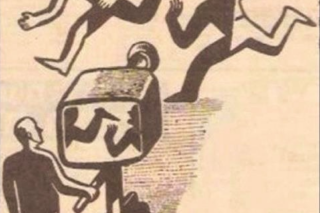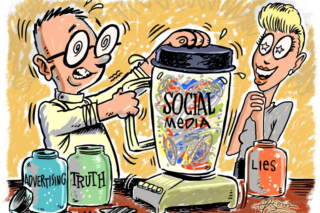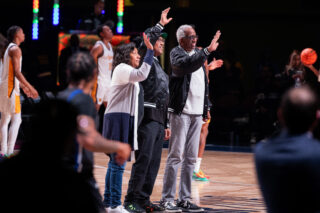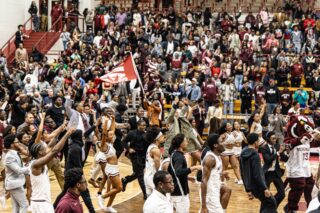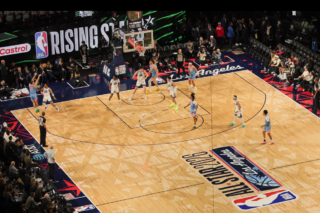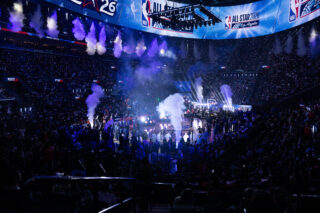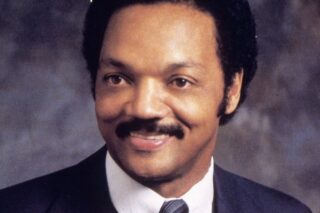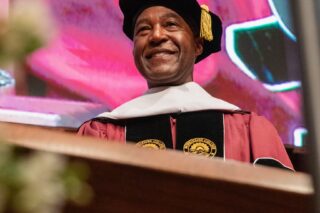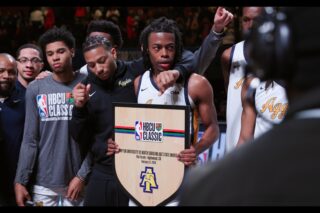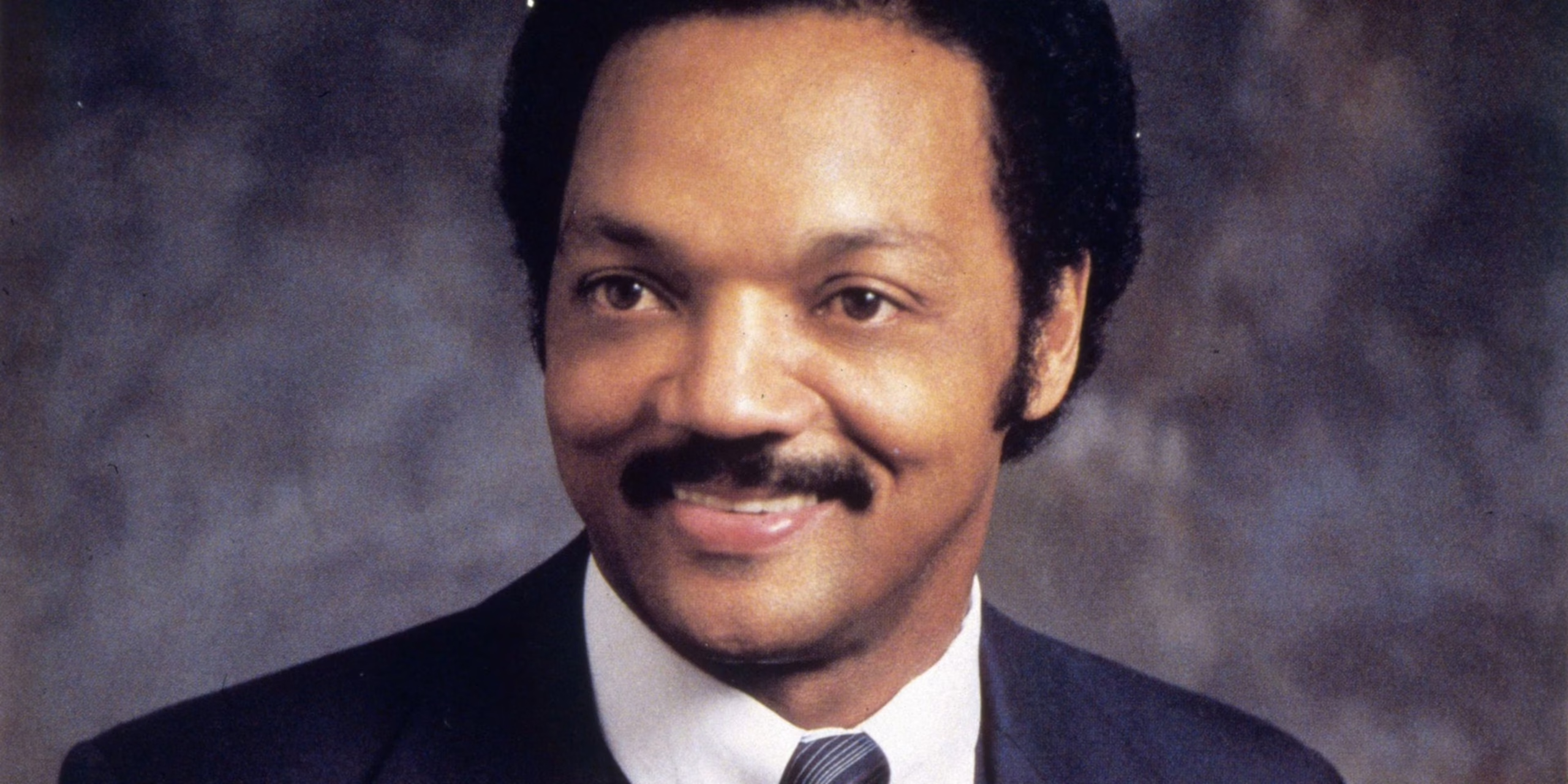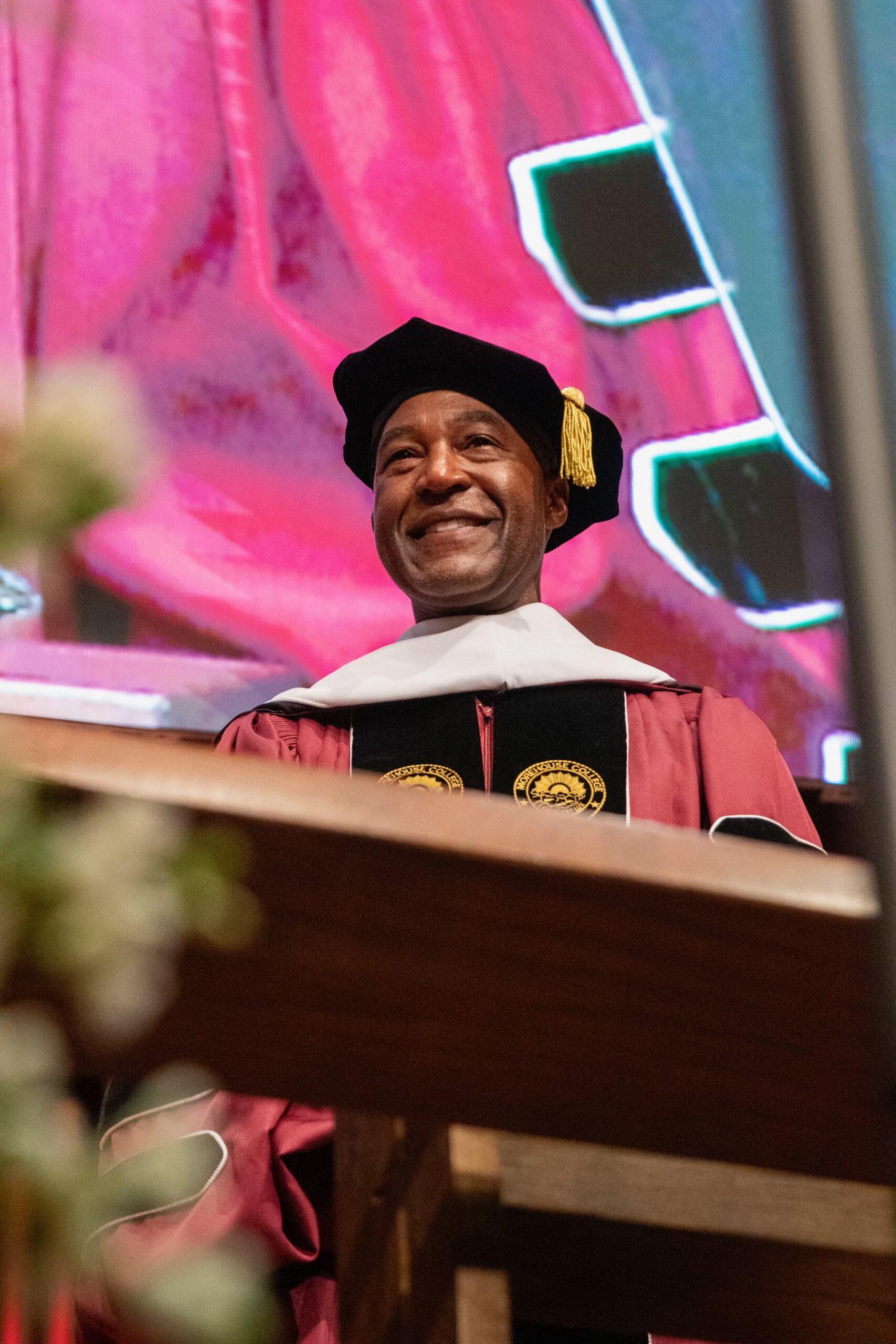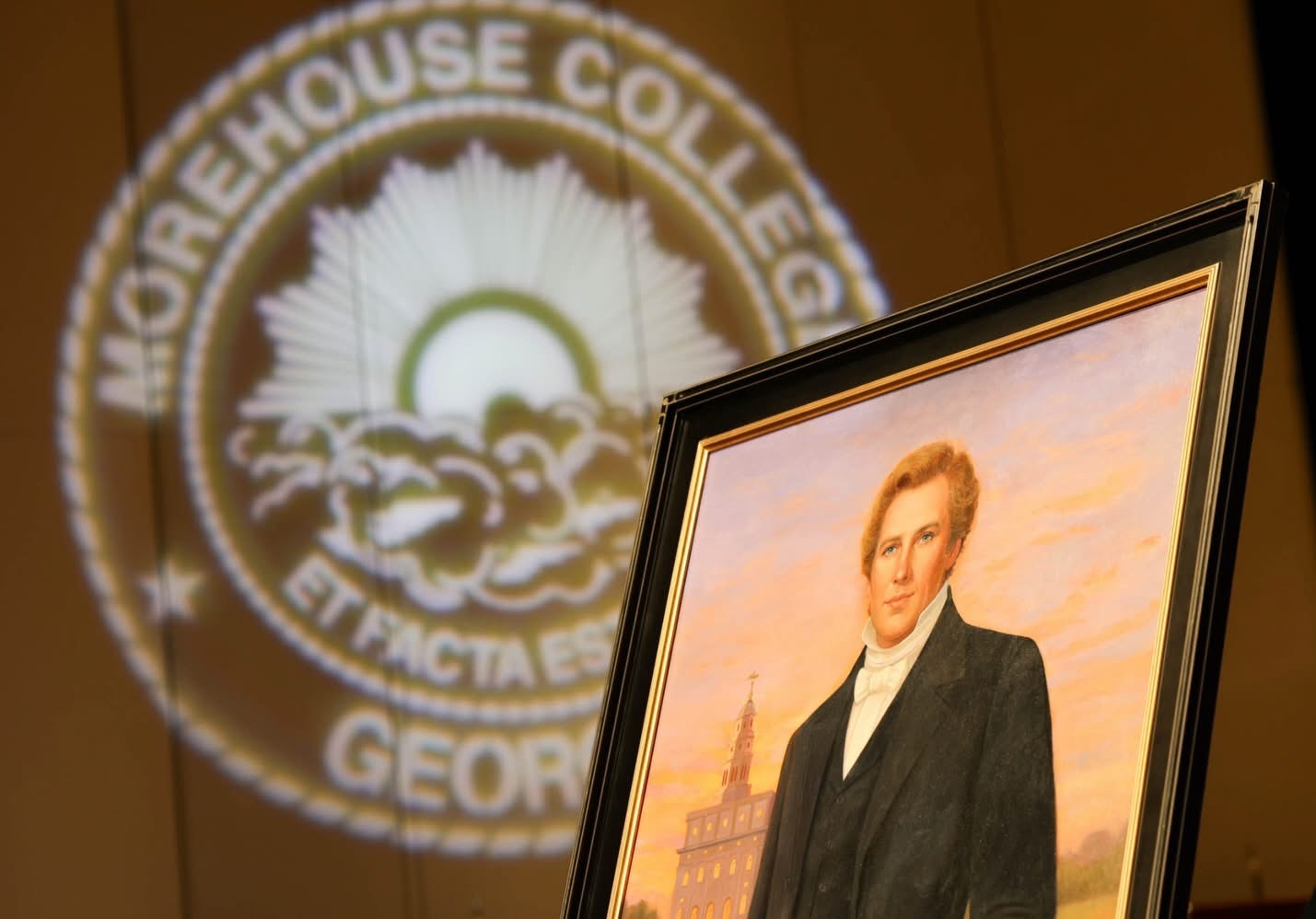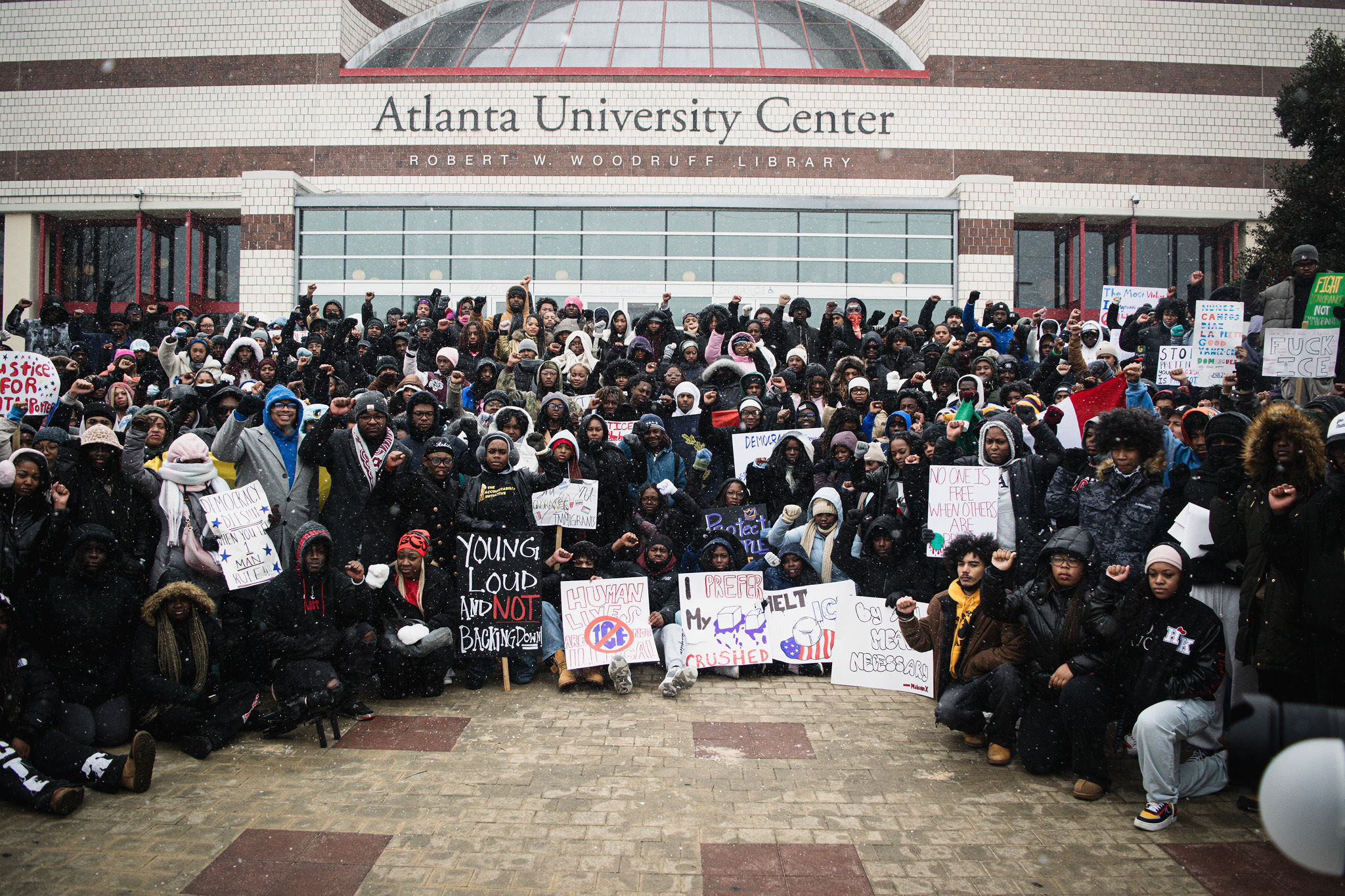Torrence Banks, Managing Editor
Morehouse College was selected to participate in Apple’s HBCU C2 Everyone Can Code and Everyone Create initiative pilot program in July. This initiative focuses on bringing creative coding to HBCUs.
While Tennessee State University serves as the national hub for the initiative, Morehouse serves as a regional hub and adds an artistic component that drives the creative approach. This is not a responsibility that the school and Africana Studies Professor and executive director Dr. Monique Earl-Lewis takes lightly.
“I’m excited about the fact that we entered into the partnership, not just as a center, but as a C2 regional hub,” Lewis said. “Now, we have the opportunity and responsibility once we’re back on ground for sure to engage the broader community. Not just the West End, but in supporting teachers through working with our Center of Excellence and Education, enhancing students’ professional skill sets before they leave Morehouse.”
Morehouse College senior and Lead Student Innovator for the initiative Nathan Goode ’21 said, “C2 is all about community awareness and being able to solve problems within the community using coding and creating through Keynote and some of the other apps that the Apple Suites gives. I think it’s helping students to help other people within the community solve some of the problems we have.”
33 HBCUs are currently a part of the initiative. In terms of HBCU involvement, the initiative is only scratching the surface. This initiative has the potential to help decrease inequities that African Americans face when it comes to accessing technology.
“I think that reaching out to the HBCU community will significantly address the inequities that we currently see around issues related to access to technology, education and training in the use of technology,” Lewis said. “And the freedom to engage fully, learning how to develop apps and code apps in ways that not only solve or address challenges, problems, social issues in the community.”
Morehouse Africana Studies Professor Dr. Clarissa Myrick-Harris said, “There’s a big gap, historically and even now. And that gap is highlighted by current events. We know that in the world today, as everyone goes online and has been online for months now, that there is an issue in many communities of color, black communities, Latinx communities, Native-American communities, in terms of actually having the technology and then having the ability to get online.”
Goode was initially surprised with how much he has learned from the initiative. He joined in the initiative with an interest in Swift programming and app development as an economics major. He did not have a lot of experience with coding initially.
“I really want them [students] to know that anyone can code, and anyone can create, Goode said.
“Coming in, I got to know a lot about Swift programming and even prototyping within Keynote. Even just using my iPhone, MacBook, and I Pad, just different features that I wasn’t aware of that boosted my efficiency just doing work in school.”
Goode initially got started coding using C++. After he finished tutoring high school and middle school students at a summer program, the professor Goode was working with introduced him to Lewis. At the time, she was just getting introduced to the program.
“I think because Nathan, literally, he’ll tell you how he just got a call out of the blue from me last summer, saying ‘Do you want to be a part of this Apple initiative,’ Lewis said. “Because I was looking for a student to participate.
“He didn’t believe me when I called him. When I sent him an email saying we’re gonna fly you from Maryland, because remember, this was July. And we were working this out in June, to July. So literally, he received an email ‘Saying we have an opportunity for you recommended by your professor. Are you interested? We’re gonna fly you to Nashville, Tennessee to be a part of this apple initiative.’”
The Bonner Office of Community Service and the Bonner Scholar Program are part of the initiative. Freshman and senior Bonner Scholars are enrolled in the one-credit and three-credit course where they can become Apple certified teachers and leverage their skills to create artifacts that benefit their Partnerships of Purpose, community partners. The initiative is also being turned into a service-learning opportunity for more students to get involved.
“They will be using this technology to advance the mission, the vision, the programs and the activities connected to their individual service sites,” Lewis said. “We’re also establishing Code and Create as a service-learning opportunity. Anyone who wants to be a part of helping engage the HBCU C2 initiative in the broader community outside of our campus, they will go through training to utilize, they will get their Apple teacher certification, or they can get it independently of us by just going online. They will work with the community partners that are currently supported by Bonner.”
Morehouse students Kollin Brown ’23 and Olamide Fagbamiye ‘22 are leading an initiative to develop culturally relevant content for students to read. As part of a requirement for the Intro to African-American Experience course, students had to engage in service learning. Due to the COVID-19 this past spring, students were not able to complete this portion of the class.
“So, we had to think out of the box, and the students instead conducted a social problem analysis of their own interests,” Lewis said. “They developed a service-learning project for the monitor office, that we invited colleagues from outside of Morehouse and Mr. Kevin D. Chapman, Jr. ‘06, assistant director of the Bonner Office of Community Service and HBCU C2 co-teacher, to provide feedback so students presented their service learning projects in the class for their grade. Ultimately, Bonner Office of Community Service selected two service projects to implement during the upcoming academic year.
“The project that we’re implementing this semester, through the Bonner Office, and also in my course this semester, is the service-learning project that develops culturally relevant content for students to read, because they were working with a literacy program. And part of what we know in terms of the literature is that students will engage more with content that is reflective of who they are.”
This semester in the Intro to African-American Experience course, students will be creating books for fourth, fifth and sixth grade students. These stories will be published in an app. Once they are critiqued, the stories will be available free online.
“We will then have those books available for free, of course, for the students or for the schools that we work with,” Lewis said. “But then these students will have created these books that they can put into iBooks, or Google Books that are now their property, but they will donate the use of the content to the service-learning spaces, working with literacy.
“They will transform the lives of children, because children will now be reading at their grade level, stories connected to black life, history and culture.”
The App Challenge is an initiative that is a part of Apple’s HBCU Code and Create (C2). It is a partnership between the students and the community. This challenge gives students the opportunity to demonstrate what they have learned in the Apple Code and Create initiative in a manner that benefits the college’s Partnerships of Purpose, our community partners.
“Then the App Challenge provides students to use those skills, the knowledge that they have gained in the Code and Create instruction to actually create apps for specific initiatives, organizations, Harris said.
“More recently, the initiative that I lead, the Atlanta Student Movement initiative, has recently issued a challenge. What that means is students accept that challenge to create an app to serve the institution, the organization and it does something to help them get their message, get their projects into the world and connect with people in ways they have not been able to do before.
“Learning how to create an app, that’s something that’s meant to reprogram your mind so that you’re open and receptive to this knowledge and you take it from there. I know young people will take it from there and go into different areas of digital innovation that we haven’t even thought of now.”
Lewis believes that Tennessee State and Apple staff saw Morehouse’s commitment to the initiative and made them a regional hub. She believes the pandemic has taught educators not to be limited in what they think is possible and that technology is necessary for all students.
“And I think Tennessee State and Apple saying our level of commitment is what resulted in us receiving this gift of technology, and to be stood up as a regional hub,” Lewis said. “Because not everyone becomes a hub.
“I think the COVID has helped us to put better structure into place, and not be limited or perceived limitations. We had to find new solutions. The second piece is that it forced us to make sure that every step of the education was more equitable, that every student has a tool in which to engage their learning. It could be a desktop, it could be a laptop, a MacBook, it could be a Surface Pro, a tablet, but every student has to have a device. We can’t pretend that it’s okay anymore.”

